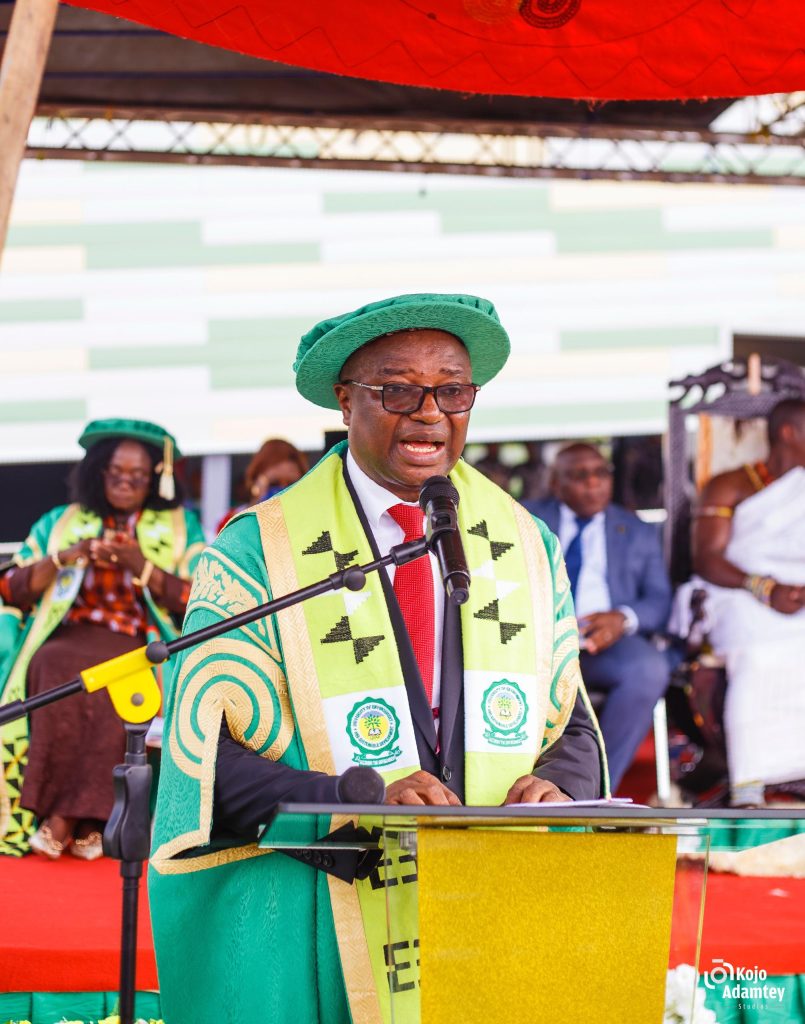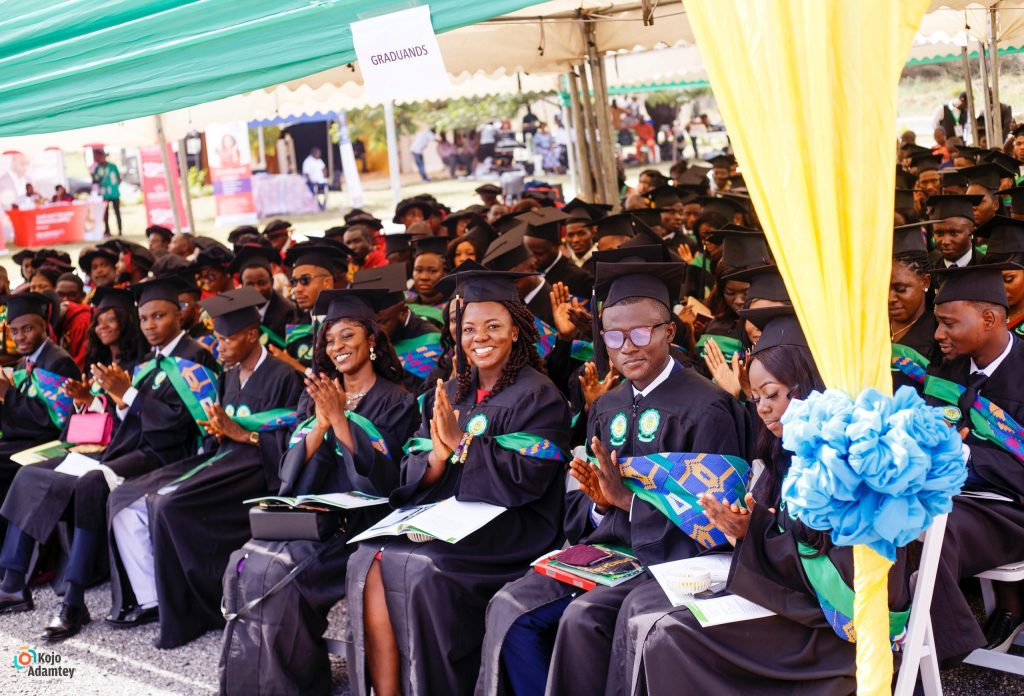By Emelia B. Addae
Somanya (E/R), Nov. 26, GNA – President Nana Addo Dankwa Akufo-Addo says the University of Environment and Sustainable Development (UESD) is strategically designed to train experts and innovators capable of tackling the multifaceted challenges posed by climate change.
From renewable energy to sustainable agriculture, and waste management to climate policy, he expressed optimism that the UESD graduates were well-equipped to lead the charge in transforming Ghana into a global model of sustainable development.
The President was addressing the inaugural congregation ceremony of UESD in Somanya in the Yilo Krobo Municipality of the Eastern Region, on the theme: “Sustaining Our Future: Innovating for a Greener Tomorrow.”
The occasion also celebrated the accomplishments of students from both the School of Sustainable Development and the School of Natural and Environmental Science.
President Akufo-Addo noted that the day was also a reminder of the work that lay ahead, stating: “Together we must ensure that the University of Environment and Sustainable Development fulfills its mandate as the beacon of innovation, education and sustainability.”
It acknowledged that the establishment of UESD demonstrated the government’s strong commitment to environmental stewardship, sustainable development, and ensuring quality education for all Ghanaians, he said.
Professor Eric Nyarko-Sampson, the Vice-Chancellor, UESD, emphasised the University’s role as “a beacon of hope, nurturing future leaders to address the pressing environmental challenges of our time.”
He announced a collaborative effort with five other universities, resulting in a grant of $7,025,176.25 from the Mastercard Foundation for a project focused on nutrition and sustainable agri-food collaboration.
This initiative aims to strengthen higher education institutions in Ghana, enhancing workforce development, research, and innovation.
It will also create an educational ecosystem that emphasises experiential training for rural Ghanaian youth, aligning labour market needs with relevant curricula.

The project spans a 10-year period from 2024 to 2034.
The Vice-Chancellor said UESD had secured a grant of €108,600 for thea project dubbed; “ImPreSSion”, which seeks to improve the design of the Bachelor of Science in Water Resources Development programme.
Professor Nyarko-Sampson outlined the challenges facing the university, including three GETFund projects that are currently stalled.
The administration block is 72 per cent complete, an auditorium (85 per cent complete), and a multifunctional block intended for use as a lecture hall, library, and ICT laboratory (35 per cent complete).
Due to a shortage of office space, the university has had to convert some lecture rooms into offices, he said, and called for support from the government, organisations, institutions, and individuals to assist the university in overcoming those challenges.
Reflecting on the university’s history, Prof. Nyarko-Sampson said the idea for its establishment was conceived on April 17, 2013, when former President John Dramani Mahama inaugurated a national planning committee that recommended its construction in the Yilo Krobo Municipality.
In 2015, Parliament passed the UESD Act, 2015 (ACT 898), formally establishing the university at Somanya with a mandate to primarily provide training in biological, physical, and mathematical sciences, agricultural and environmental sciences, and environmental design and architecture.
It was inaugurated on August 5, 2020, by President Nana Akufo-Addo.
Council Chairman Professor Jonathan Narh Ayertey addressed the graduating class of 2024, along with faculty, families, and friends.
He extended heartfelt congratulations to the graduates, highlighting their remarkable achievements as a testament to their hard work and dedication over the past four years.

“This day is not only to honour the graduates but also to reflect on the institution’s journey since its inauguration in 2020,” he said, acknowledging the tremendous effort and resilience demonstrated by the students.
“Each one of you has worked through challenges. You embraced the odds, and your efforts have paid off for us to witness this day.”
He credited the unwavering support of faculty and staff for the graduates’ success and reaffirmed the university’s commitment to overcoming the challenges together as a community.
He expressed gratitude to President Akufo-Addo, traditional authorities, and parents among other stakeholders, for their instrumental role in the growth of UESD.
Professor Ayertey wished the graduates many more opportunities for celebration as they embark on their next chapters in life.
The ceremony highlighted not only academic accomplishments but also the collective strength and dedication of the UESD community, paving a promising path for the university’s continued success and the development of future leaders in a sustainable practice.
Master Maxwell Boakye, who graduated with a Degree in Environment and Public Health, was recognised as the Best Graduating Student with a grade point average of 4.0, receiving 10 out of 23 awards sponsored by individuals and institutions.
Ms Portia Teye Korlekie, the Best Female Graduating Student, earned her degree in Energy Sustainability with an aggregate score of 3.8.
In the 2021/22 academic year, UESD welcomed its first cohort of 192 students to pursue the university’s cutting-edge programmes and research initiatives. It currently boasts of about 1,000 students, reflecting its rapid growth and increasing relevance in the field of sustainable development and energy education.
GNA